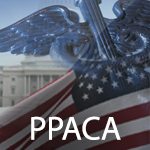Archive
Snow removal vital in preventing slip and fall case liablity
 In addition to worrying about potential storm damages from this season’s record snowfall, New England property owners need to be aware of a recent decision in Massachusetts case law which changes the way that courts look at weather-related slip and fall incidents.
In addition to worrying about potential storm damages from this season’s record snowfall, New England property owners need to be aware of a recent decision in Massachusetts case law which changes the way that courts look at weather-related slip and fall incidents.
For many years, Massachusetts courts based decisions surrounding slip and fall accidents in regards to whether the cause of the fall was due to natural accumulation of snow and ice. In basic terms, if the property owner took precautions to remove snow in a reasonable manner, then the law would find in their favor. Read more…
Chief Legal Officers show concern for patent trolls, data breaches, ethics and compliance
 Ethics and compliance top the list of issues plaguing the nation’s top in-house counsel and chief legal officers for 2015. According to a survey from The Association of Corporate Counsel (ACC), 96% of lawyers ranked ethics and compliance as “important” and a quarter of them feel the topic is “extremely important.” ACC officials say the results are not surprising, given the numerous compliance laws and regulations implemented within the last decade, such as The Sarbanes Oxley Act, the Dodd-Frank Act and the Foreign Corrupt Practices Act. The survey collected responses from over 1,200 legal professionals in 46 countries, and examines the practices, trends and changes in the role of the legal officers by key segments such as industry, compensation, gender and region. Read more…
Ethics and compliance top the list of issues plaguing the nation’s top in-house counsel and chief legal officers for 2015. According to a survey from The Association of Corporate Counsel (ACC), 96% of lawyers ranked ethics and compliance as “important” and a quarter of them feel the topic is “extremely important.” ACC officials say the results are not surprising, given the numerous compliance laws and regulations implemented within the last decade, such as The Sarbanes Oxley Act, the Dodd-Frank Act and the Foreign Corrupt Practices Act. The survey collected responses from over 1,200 legal professionals in 46 countries, and examines the practices, trends and changes in the role of the legal officers by key segments such as industry, compensation, gender and region. Read more…
Back from the polls – Election 2014 and what it means for the ACA
 Last week’s events in Washington D.C. may affect PPACA as we now know it.
Last week’s events in Washington D.C. may affect PPACA as we now know it.
Most notable was the fact that Election Day turned most of the country into a sea of red leaving pundits to speculate on the future of PPACA. Will it prevail? Even with a GOP-controlled Congress, getting any legislation to completely overhaul PPACA through the President would be wishful thinking. Perhaps the most disconcerting is the Supreme Court’s recent decision to hear a new challenge to PPACA. Here we go again….what could this mean for employers? While it’s unlikely that we’ll see many fundamental changes for employer-provided benefit plans, it doesn’t mean there won’t be minor tweaks to the law and how its provisions are applied.
We had a couple of minor but unexpected changes already reminding us that the law’s provisions can change on a dime. First, after employers were scrambling to comply, it was announced Read more…
2015 Compliance To-Do’s: Is your checklist ready?
 As 2014 winds down, employers are longing for a reprieve in benefits compliance after having to endure a year of new, often times complex, guidance related to the Affordable Care Act (ACA), HIPAA and same-sex spouses. Unfortunately, to-do lists are only going to get longer as employers review their plans and get ready for the approaching challenges and deadlines arising in the upcoming year. Below is a summary of three main compliance issues for employers to keep on their regulatory checklists in the coming year. Read more…
As 2014 winds down, employers are longing for a reprieve in benefits compliance after having to endure a year of new, often times complex, guidance related to the Affordable Care Act (ACA), HIPAA and same-sex spouses. Unfortunately, to-do lists are only going to get longer as employers review their plans and get ready for the approaching challenges and deadlines arising in the upcoming year. Below is a summary of three main compliance issues for employers to keep on their regulatory checklists in the coming year. Read more…
Control groups for benefit plans – Are you included?
 Historically, employers have been able to provide different levels of medical benefits to their employees without much regard for what other companies in the same control group offered. The onset of PPACA, however, has caused employers to reexamine how benefits are handled in their control groups in order to ensure they are in compliance with the new regulations. Many have found it more efficient to partner with other control groups, a process determined by underwriting rules based on a percentage of shared ownership. For purposes of PPACA’s employer mandate, there are three types of control group situations in which several companies can partner together and are therefore considered one employer. Doing so requires them to include all employees within the control group in the 50 (or 100) employee count threshold. Read more…
Historically, employers have been able to provide different levels of medical benefits to their employees without much regard for what other companies in the same control group offered. The onset of PPACA, however, has caused employers to reexamine how benefits are handled in their control groups in order to ensure they are in compliance with the new regulations. Many have found it more efficient to partner with other control groups, a process determined by underwriting rules based on a percentage of shared ownership. For purposes of PPACA’s employer mandate, there are three types of control group situations in which several companies can partner together and are therefore considered one employer. Doing so requires them to include all employees within the control group in the 50 (or 100) employee count threshold. Read more…
Attention employers: have you double checked your FMLA policies?
 Recently, the U.S. Department of Labor (DOL) announced a revision to the definition of a spouse under the Family Medical Leave Act (FMLA). The long-awaited change comes in response to the Supreme Court’s ruling last summer which struck down a key provision of the Defense of Marriage Act (DOMA). Employers can now use the “place of celebration” standard to determine FMLA eligibility, allowing a qualified employee in a legally recognized same-sex marriage to take a job-protected leave of absence for his or her spouse or family member regardless of where he or she resides.
Recently, the U.S. Department of Labor (DOL) announced a revision to the definition of a spouse under the Family Medical Leave Act (FMLA). The long-awaited change comes in response to the Supreme Court’s ruling last summer which struck down a key provision of the Defense of Marriage Act (DOMA). Employers can now use the “place of celebration” standard to determine FMLA eligibility, allowing a qualified employee in a legally recognized same-sex marriage to take a job-protected leave of absence for his or her spouse or family member regardless of where he or she resides.
The proposed rule is a welcome relief for employers who previously had to administer conflicting guidance for same-sex married couples on laws such as COBRA, cafeteria plan elections, ERISA and FMLA. With PPACA provisions consuming employers’ time these days, it is still important to remember the significance of improper FMLA administration. Read more…
How many employees do you have? The answer may not be so simple
 Simple question? Maybe. For many organizations, it is anything but simple. Companies hire staff to complete required tasks. Many of these individuals are easily identified as ‘employees’ and the employer generates a W-2 reporting their compensation to the government. Alternatively, some organizations onboard certain workers as “Independent Contractors” to accomplish tasks. This category of worker is in a different class.
Simple question? Maybe. For many organizations, it is anything but simple. Companies hire staff to complete required tasks. Many of these individuals are easily identified as ‘employees’ and the employer generates a W-2 reporting their compensation to the government. Alternatively, some organizations onboard certain workers as “Independent Contractors” to accomplish tasks. This category of worker is in a different class.
It gets confusing when “contractors” and regular employees are sitting at desks right beside each other doing identical or similar jobs and being overseen by the same individuals. In this scenario, the lines are blurred considerably. The IRS provides employers with some information on how to determine if someone has crossed the line from an ‘Independent Contractor’ to ‘employee’. The IRS tells us that the determination is based on Read more…
Not only is PPACA ignorance no excuse, it’s unbelievably expensive…
 Make no mistake: PPACA regulations include penalties for provisions that employers have probably never even heard of. Employers know that there are many new taxes and costs associated with sponsoring a group health plan under the new health care reform regulations, for example, most employers understand the exposure under the employer mandate or “play-or-pay” penalty. However, these penalty amounts can pale in comparison to the potential $100 per day, per affected-person penalty that exist on some of the least-publicized aspects of the law. And these penalties can be assessed for a variety of reasons.
Make no mistake: PPACA regulations include penalties for provisions that employers have probably never even heard of. Employers know that there are many new taxes and costs associated with sponsoring a group health plan under the new health care reform regulations, for example, most employers understand the exposure under the employer mandate or “play-or-pay” penalty. However, these penalty amounts can pale in comparison to the potential $100 per day, per affected-person penalty that exist on some of the least-publicized aspects of the law. And these penalties can be assessed for a variety of reasons.
Let’s take an example: An employer fails to realize that the new regulations prohibit him from continuing to offer a “non-integrated” Health Reimbursement Account (HRA), Read more…
